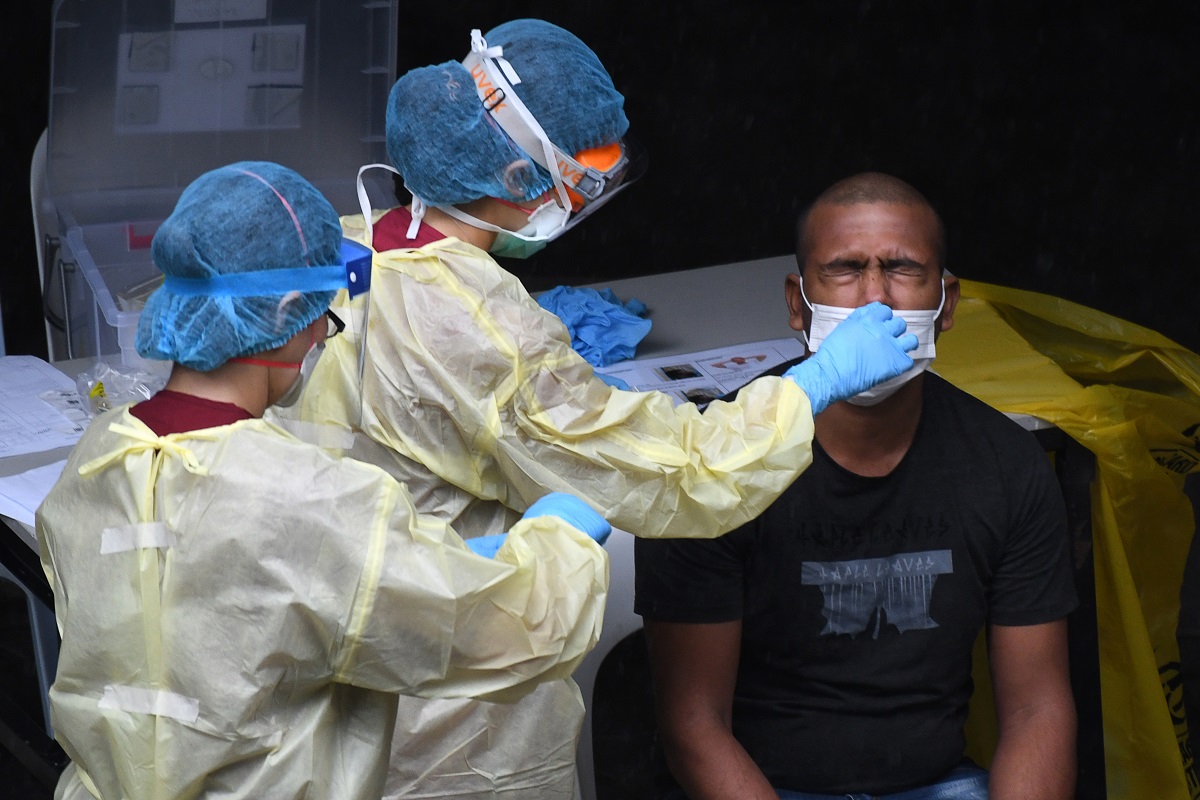Singapore government said on Monday that it will ramp up the coronavirus testing for foreign workers living in dormitories that have emerged as the hotspots for the transmission of the disease, even as the city-state reported two more COVID-19 deaths.
A total of 21,000 migrant workers living in dormitories have been tested since the start of the COVID-19 outbreak. The total number of the COVID-19 cases in the city-state has risen to 14,423.
Advertisement
On Monday, two Singaporean men, 82 and 81, died due to the virus, taking the total death toll to 14.
Health Minister Gan Kim Yong said Singapore was testing some 3,000 foreign workers daily.
He dismissed a report that Singapore had reduced the volume of COVID-19 testing for migrant workers, a good number of them from India.
Let me say that this is not true, Gan was quoted by The Straits Times as saying in response to a news report over the weekend.
“Our testing capacity for migrant workers is about 3,000 a day. We have not reduced it. Instead, we have been increasing the capacity of testing of our migrant workers. The rate of testing has not slowed, Gan stressed at a COVID-19 multi-ministry task force press conference.
This means that one in 15 migrant workers in dormitories have been tested, Gan said.
This is far higher than the testing rates seen in other countries like Korea, which is one in 19, Gan pointed out.
The authorities started testing at dormitories where there were a high number of cases detected. They are now testing at other dormitories as cases emerge, including at factory-converted dormitories, he said.
We are also actively testing around confirmed cases in these dormitories, where new cases are starting to emerge in an effort to isolate cases and contain the further transmission, he said.
For dormitories where the assessed rate of infection is extremely high, efforts are focused on isolating those who are symptomatic, even without a confirmed COVID-19 test, the minister explained.
This allows us to quickly provide medical care to these patients, he added.
Testing serves important objectives such as diagnosing patients, to provide them with appropriate treatment and care and carrying out contact tracing so to limit and control the spread, he said.
Singapore is testing more than 8,000 people a day, up from 2,900 a day previously.
Targeted testing is being implemented for selected groups, such as essential workers and staff of institutions such as nursing homes, who come into close contact with the vulnerable elderly.
National Development Minister Lawrence Wong pointed out that the capability to build up more testing capacity is critical as Singapore seeks to eventually resume and restart its economy.
“But an important point to note is that testing, while as critical and important as it is, cannot be a substitute for personal responsibility and safe distancing measures,” he said.
“So, we go back to the fundamentals and ask everyone, during this period, to stay home, uphold good personal hygiene,” stressed Wong.
The Health Ministry said that there were 799 new cases of the coronavirus, including 764 foreign workers, in Singapore on Monday. Fourteen were Singaporeans (citizens) or permanent residents (foreigners).
Seventeen foreign workers not living in dorms were among the new case.
The Health Ministry declared seven new coronavirus clusters, including welfare home for the destitute Acacia Home in Admiralty.
The new cases include 12 residents and two employees at Acacia Home, a home for destitute people managed by Sathya Sai Social Service and funded by the Ministry of Social and Family Development.
Around 300,000 low-wage workers, mostly from South Asia, work in Singapore in construction and maintenance. Most of them live together in huge dormitory complexes.
Though the dormitories are being disinfected and bedding accommodation re-arranged, most of these were overcrowded, leading to a large number of cases as foreign workers are now undergoing screening and testing.
All foreign workers in the construction sector have been placed on mandatory stay-home notices until May 4 as a precautionary measure against the spread of COVID-19.
Singapore is now in an extended “circuit breaker” period to stem the spread of the disease. The period was extended to June 1 from the first set to end on May 4.











